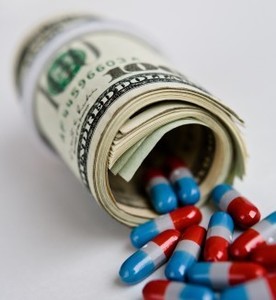Healthcare organizations have expressed their ‘grave concerns’ over the ‘enormous financial consequences’ of the US Food and Drug Administration’s (FDA) guidance on naming of biologicals.
FDA issued final guidance detailing the agency’s requirements for the non-proprietary naming of biologicals on 12 January 2017 [1]. According to the agency, the new guidance will ‘facilitate accurate identification of these biological products by healthcare practitioners and patients’. However, healthcare organizations believe that the FDA guidance may force hospitals, insurers, physician practices, and government agencies, to spend billions in order to redesign their information systems.
In a 9 February 2017 letter, healthcare information provider, Wolters Kluwer, asked the White House Office of Management Budget ‘to suspend implementation of the guidance until the exact economic impact can be determined, and less costly alternatives given full consideration’.
In its guidance FDA estimates that companies will have to spend a total of 420 hours per biological application to comply with the naming convention. This estimate, however, according to Wolters Kluwer, only applies to applicants or sponsors of new biologicals. They add that ‘it does not include the enormous cost burden imposed on other healthcare industry stakeholders to comply with the new mandate, especially those involved directly in patient care’.
Wolters Kluwer points to existing electronic health record, billing and pharmacy systems and databases, as well as prescribing systems and millions of patient records that will need to be updated. Staff time necessary to make these modifications has been estimated to range from 50−70 hours per drug product per institution. Therefore, the firm believes that ‘when these hourly costs are multiplied by the 5,500 hospitals, more than 60,000 pharmacies, and the thousands of physician practices, pharmacy benefit managers, health technology vendors, quality improvement organizations, standard developers, group purchasing organizations, and wholesalers across the nation, the total economic burden will easily run into the billions of dollars’.
Similar concerns have also been expressed in letters from First Databank, which publishes healthcare data; The National Council for Prescription Drug Programs, a non-profit organization that sets standard codes for electronic healthcare transactions and CVS Health, one of the largest pharmacy benefits managers.
This is not the first time that concerns have been expressed over FDA’s biologicals naming guidance. The Generic Pharmaceutical Association has previously said that the guidance had the potential ‘to erect barriers to patient access to new, more affordable medicines, and jeopardize their safety’ [2]. While the Academy of Managed Care Pharmacy has also previously expressed concern that ‘any departure from the currently accepted nonproprietary naming system will create confusion amongst healthcare practitioners and patients, have negative effects on the ability to ensure safe dispensing and tracking, and result in lower market adoption and cost-savings’ [1].
Related article
Biosimilar naming in the US, the debate continues
References
1. GaBI Online - Generics and Biosimilars Initiative. FDA issues final guidance on naming biologicals [www.gabionline.net]. Mol, Belgium: Pro Pharma Communications International; [cited 2017 Mar 31]. Available from: www.gabionline.net/Guidelines/FDA-issues-final-guidance-on-naming-biologicals
2. GaBI Online - Generics and Biosimilars Initiative. Arguments for same INN for biosimilars presented at WHO meeting [www.gabionline.net]. Mol, Belgium: Pro Pharma Communications International; [cited 2017 Mar 31]. Available from: www.gabionline.net/Biosimilars/General/Arguments-for-same-INN-for-biosimilars-presented-at-WHO-meeting
Permission granted to reproduce for personal and non-commercial use only. All other reproduction, copy or reprinting of all or part of any ‘Content’ found on this website is strictly prohibited without the prior consent of the publisher. Contact the publisher to obtain permission before redistributing.
Copyright – Unless otherwise stated all contents of this website are © 2017 Pro Pharma Communications International. All Rights Reserved.
Source: CVS Health,Drug Patent Watch, First Databank, NCPDP, Wolters Kluwer








 0
0











Post your comment